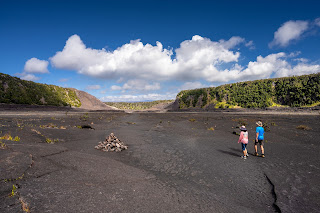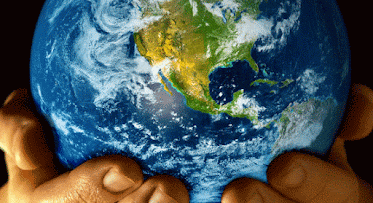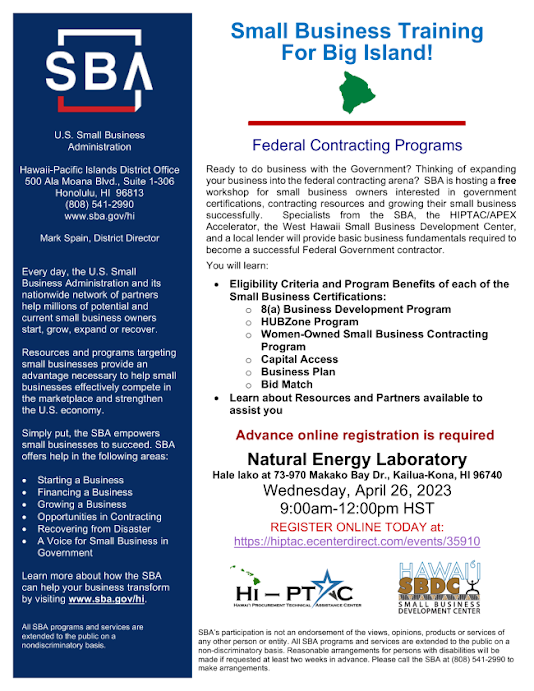 |
| Forecasting arrival of marine debris to Hawaiian waters and deploying rapid removals at sea are aims of a new project funded by the federal Department of Commerce. See more below. Photo from Papahānaumokuākea Marine Debris Project |
The county's www.hawaiizerowaste.org explains that during "the 1969 National UNESCO Conference in San Francisco, social activist John McConnell proposed an Earth Day to the San Francisco Board of Supervisors. The proposal won strong support and was followed by an Earth Day Proclamation by the City of San Francisco. The idea, supported by U. N. Secretary General U Thant, Margaret Mead and many others, spread worldwide. The ringing of the United Nations Peace Bell at the moment of the March Equinox on Earth Day has become a tradition.
The Democratic senator, Gaylord Nelson of Wisconsin, eventually founded the first nationwide Earth Day that was celebrated on 22 April 1970. Inspired by the protest movements of the 1960s, twenty million Americans took to the streets to demonstrate for a cleaner environment. In the aftermath, President Richard M. Nixon proposed the creation of the Environmental Protection Agency in July 1970 and Congress passed the Clean Air (1970), Clean Water (1972), and Endangered Species (1973) Acts. The 2010 Earth Day, now celebrated worldwide, is its 40th anniversary."
 |
| Saturday is the beginning of nine days of National Park Week, kicking off with free admission and Journey to the Summit. NPS Photo by Janice Wei |
Hawai'i Volcanoes kicks off nine days of celebrating National Parks Week on Saturday between 10 a.m. and 2 p.m. with a family adventure called Journey at the Summit at both the Volcano and Kahuku units.
To read comments, add your own, and like this story, see facebook.com/kaucalendar. See latest print edition at kaucalendar.com, in the mail and on stands.
WORTH OF WATER IS THE TITLE OF A SCULPTURE PROJECT WITH A CALL TO ARTISTS. Volcano Art Center invites artists to submit proposals in the form of a drawing with descriptive notes or photos of three views of a 3-D maquette for stand alone sculptures or conceptual installations. The aim is to express the Worth of Water in all its forms, including its sound, shape, interaction with other
environmental elements or creatures, impacts, and/or the cultural value of water.Professional artists, amateur artists, and university students in an art program are invited to submit original works. Deadline to apply is May 15th.
The Worth of Water Exhibit will be installed at the outdoor Niaulani Sculpture Garden and the show will be from Nov. 26 through Jan. 10, The sculpture garden is uniquely situated adjacent to an old growth native rain forest and features a loop trail, designed by landscape architect David Tamura. It provides inviting areas for viewing sculptures.
Volcano Art Center illustrates the Worth of Water Exhibit Concept with an explanation about water from Mary Kwena Pukui, during a 1975 interview with Kepa Maly:
“The Hawaiian word for water is wai. The Hawaiian word for wealth is waiwai; wai is doubled, or said twice. When you have wai you have life, the ability to sustain yourself upon the land. And the water is believed to be from the god Kāne i ka wai ola, Kāne the giver of the water of life. The Hawaiian word for spring of water is pūnāwai. Pūnāwai or puʻuna-wai described a place where water bubbles up from the ground (rising like a hill or a mound), it is the source of water.
'The Hawaiian word kūpuna, may be translated as –kū (standing at) puna (source of water); kūpuna are those who stand at the water source…it is that our elders are those who stand at the source of knowledge. They stand at the well-spring gained by years of their life…”
Nets to Roads: Innovative Research to Scale-up Removal and Repurposing of Derelict Fishing Gear is a project to receive $2.9 million for Hawai'i Sea Grant through the Marine Debris Challenge Competition. In cooperation with University of Hawai', the goal is to accelerate removal of large plastic marine debris across the entire Hawaiian archipelago and recycle it into public infrastructure. The team will build and test an oceanographic model to forecast the arrival of large marine debris in nearshore waters of Hawai'i to enable rapid at-sea removals, then create a centralized, relational database that captures critical information about each distinct large marine debris item at multiple stages.
Other projects around the state to be funded:
 |
| Creating coral nurseries by installing concrete framework can lead to the restoration of natural reefs in degraded nearshore waters. Photo from DLNR |
Holistic Community-led Habitat Restoration in a Hawaiian Context will employ the traditional Native Hawaiian-based ridge-to-reef ahupua'a strategy will be used to address habitat degradation in watersheds o heavily urbanized areas. From the mountain regions, flatlands, and streams that connect them to the coral reefs in the bay itself, this restoration investment will create watersheds and reefs that withstand future climate conditions. The project will focus on including Native Hawaiian communities and organizations in the restoration work, to build capacity and inspiration for future restoration efforts.
 |
| Image from State of Hawai'i Climate Portal at www.climate.haawaii.gov |
FRIDAY WAS CU HAWAI'I MEMBER APPRECIATION DAY at the Nā'ālehu and Pāhala
CU Hawai'i provided surprise giveaways. Members spun a wheel of fortune to with the needle landing on the name of a gift to receive.
CU Hawai'i Pāhala branch is located in the macadamia building on Pikake Street and is open 1 p.m. to 5 p.m. on Fridays. The Nā'ālehu branch is on Hwy 11 in the core of Nā'ālehu town and is open Mondays through Fridays from 9 a.m. to 5 p.m. See www.cuhawaii.com.
 |
Curtis Higashi, Jay Taganas and Tyren Fukanaga-Camba erect a glass greeting and security station at the entrance to Kaʻū Hospital in Pāhala. Photo by Julia Neal |
A NEW GLASS GREETING AND SECURITY STATION FOR KAʻŪ HOSPITAL & EAST HAWAI'I HEALTH CLINIC went up this week in Pāhala, put together by Jay Taganas and his crew Curtis Higashi and Tyren Fukanaga-Camba.
The campus for hospital and clinic is at the entrance to Pāhala at 1 Kamani Street at the corner of Hwy 11.
The facility offers a 24/7 emergency department, inpatient medical and rehabilitation care, long-term care, adult day health, immunizations, x-ray and lab services, in addition to an on-site family practice rural health clinic.The clinic offers urgent care and appointments and is open Monday through Friday from 7 a.m. to 5:15 p.m., closed on weekends and holidays. Its Family Medicine practitioner is Jennifer Shrestha, Md. Call 808-932-4205. See more services from hospital and clinic online at https://www.easthawaiihealthclinics.org/east-hawaii-health-clinic-at-kau/.
To read comments, add your own, and like this story, see facebook.com/kaucalendar. See latest print edition at kaucalendar.com, in the mail and on stands.
OUTDOOR MARKETS
Volcano Thursday Market, Cooper Center, Volcano Village, Thursdays, 3 p.m. to 6 p.m., with live music, artisan crafts, ono grinds, and fresh produce. See Volcano Evening Market facebook.
Volcano Swap Meet, fourth Saturday of the month from 8 a.m. to noon. Large variety of vendors with numerous products. Tools, clothes, books, toys, local made healing extract and creams, antiques, jewelry, gemstones, crystals, food, music, plants, fruits, and vegetables. Also offered are cakes, coffee, and shave ice. Live music.
Volcano Farmers Market, Cooper Center, Volcano Village on Sundays, 6 a.m. to 10 a.m., with local produce, baked goods, food to go, island beef and Ka'ū Coffee. EBT is used for Supplemental Nutrition Assistance Program, formerly Food Stamps. Call 808-967-7800.
O Ka'ū Kākou Market, Nā'ālehu, Wednesdays, 8 a.m. to 2 p.m. Contact Nadine Ebert at 808-938-5124 or June Domondon 808-938-4875. See facebook.com/OKauKakouMarket.
Ocean View Community Market, Saturdays and Wednesdays, 6:30 a.m. to 2 p.m., corner Kona Dr. Drive and Hwy 11, near Thai Grindz. Masks mandatory. 100-person limit, social distancing required. Gate unlocked for vendors at 5:30 a.m., $15 dollars, no rez needed. Parking in the upper lot. Vendors must provide their own sanitizer. Food vendor permits required. Carpooling is encouraged.







.png)

.jpg)
.jpg)

